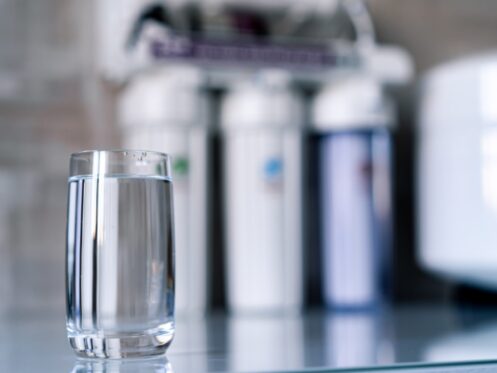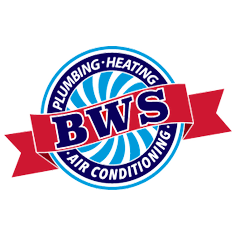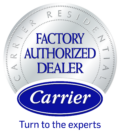Whole-home water filters provide you with clean and healthy water throughout your entire home and are an investment worth making. Even when you live in an area that has treated municipal water, there are certain contaminants that can make it through your tap and into the water you drink, bathe and cook with. There are specific clean water standards set by the Environmental Protection Agency in the United States, but many people still opt to install different water filtration upgrades.
The Effectiveness of Filtration for Water Contamination Issues
Whole-house water filtration systems are effective in a few different ways. For starters, they can make your drinking water far crisper and more palatable. It’s an ideal setup if you have well water or a lack of treated water. These water sources are negatively affected by things like environmental pollution and can make you quite sick with ongoing exposure. Pesticides, industrial waste and storm water can all negatively impact your water quality as well. It’s common for lead and chlorine to be found in high levels of tap water. A series of filters (carbon, ion exchange, absorption and mechanical filters) have the potential to remove them right at the point where water comes into your home.
If you live by a beach, you may have noticed that it is sometimes closed to swimmers because of high levels of bacteria and pathogens. They could potentially make their way into your home’s water source if you’re not using a filtration system to remove them before consumption or exposure. A reverse osmosis system is very effective, removing bacteria, pathogens, sediment and chlorine from water. This step is performed with a pre-filter, followed by other semi-permeable membranes.
Whole-Home Water Filters to Protect Your Health
It’s rare that the water coming out of your tap is going to result in immediate health concerns. However, prolonged exposure to things like copper and lead can lead to chronic health issues, such as an upset stomach and even brain damage. Point of entry whole-house filters will make sure that all of the water in your home has been treated before you’re exposed to it, regardless of which faucet it is coming out of. The initial investment is well worth protecting your health.
Protecting Your Appliances and Home Value
When water flows through your tap and into appliances, like the dishwasher and washing machine, there are minerals and chemicals that can build up over time. This is more common if you live in an area that has hard water in addition to contaminated water. Filtered water, by way of a whole-house filtration unit, can reduce any corrosion that could potentially take place, in addition to improving the pH level of your water. This will protect the value of your appliances and fixtures. It can even help keep your clothing looking new for longer periods of time.
Different Types of Whole-Home Water Filtration Systems
There are few different types of whole-house water filters that you can have installed. These include water softener systems, UV purification systems, filters that remove sediment and activated carbon filters. Each system will address different types of contaminants, so it might be necessary to start with a water quality test.
Water Softeners
A water softener is a great option if you know that you’re dealing with hard water. This is a very common problem, caused by a high concentration of minerals, such as calcium and magnesium. These minerals can impact your home and body. Hard water leaves stains behind on your fixtures and clothing. In addition, it can dry out your skin and even reduce water pressure as the deposits start to accumulate. Water softeners will take in water from your main water source. There are resin beads in the unit that will remove minerals from the water before it exits the tank.
Sediment Filters
Sediment filters are used to remove different particulates from your water, including bits of clay, sand, dirt and even rust. Sediment can be harmful to your body when consumed regularly, but it can also clog your pipes. This leads to decreased water pressure and damage to your appliances. This form of mechanical filtration utilizes very small pores that do not allow particles to flow through. Water does have the ability to pass, just in a much cleaner and healthier form. These filters will need to be replaced periodically. On average, sediment filters usually last for somewhere between three to six months, depending on the brand of filter and how much water you use in your home.
Carbon Filters
Carbon filters are generally used to remove chlorine from water, in addition to improving the taste and smell. Chlorine is used to kill off bacteria and pathogens in water, but high levels of it can be unpleasant when you’re drinking tap water or bathing in it. Activated carbon filters can also remove chemicals from pesticides and herbicides that have leaked into your local water table. If your local water treatment facility uses chloramine molecule to treat the water, carbon filters are effective for removing this disinfectant as well.
Whole-Home Water Filtration Systems vs. Under the Sink Units
Many people who are on a budget opt to simply filter the water that they’re drinking each day. While this is a healthy alternative to drinking tap water and it is beneficial for the environment, you’re still exposing yourself to unfiltered water in the bath, when washing your hands, during cooking and while cleaning. It’s quite a bit more expensive to invest in a whole-home unit, but the investment is well worth the health benefits, and it allows you to protect the value of your home.
Whole-home water filtration systems are installed at the point of entry in your home, where water comes in. Depending on the type of filtration that you’ve chosen, water will pass through one or more filters before making its way through your various pipes and faucets. Your plumbing, pipes and appliances are all protected, since the contaminated water doesn’t make it past the initial point of entry.
The installation of a whole-home water filtration system in the Twin Cities area provides you with an additional level of protection from contaminated water. Most of these systems have multiple filters that water will pass through. This includes a pre-filter that removes large particulates. The additional filters can remove chlorine, chemicals and other contaminants. This protects you from ingesting unhealthy water, but you’re also protected from inhaling it or absorbing it through your skin.
We Can Help
If you would like to learn more about the benefits that can be achieved with a whole-house water filtration system, reach out to BWS Plumbing, Heating & Air Conditioning. In addition to common plumbing services, such as water heater repair, sump pump replacement and leak detection, BWS Plumbing, Heating & Air Conditioning can also take care of your heating and cooling needs. Routine maintenance and repairs can go a long way towards protecting your HVAC system and your Twin Cities home.



